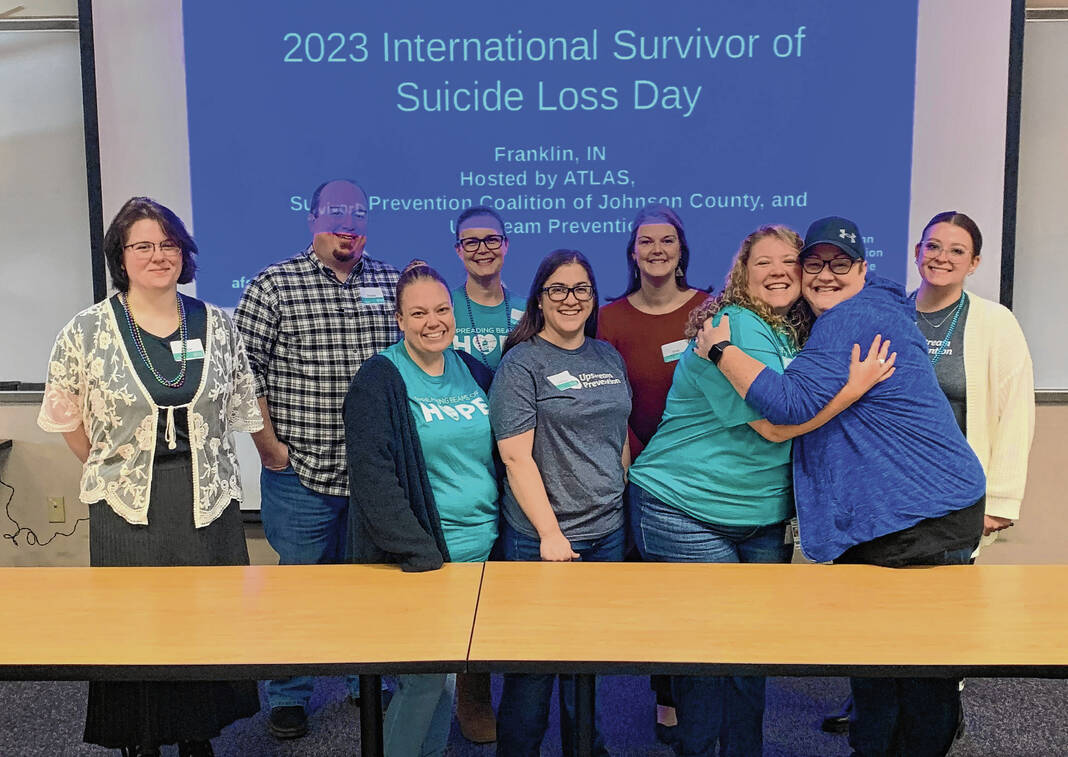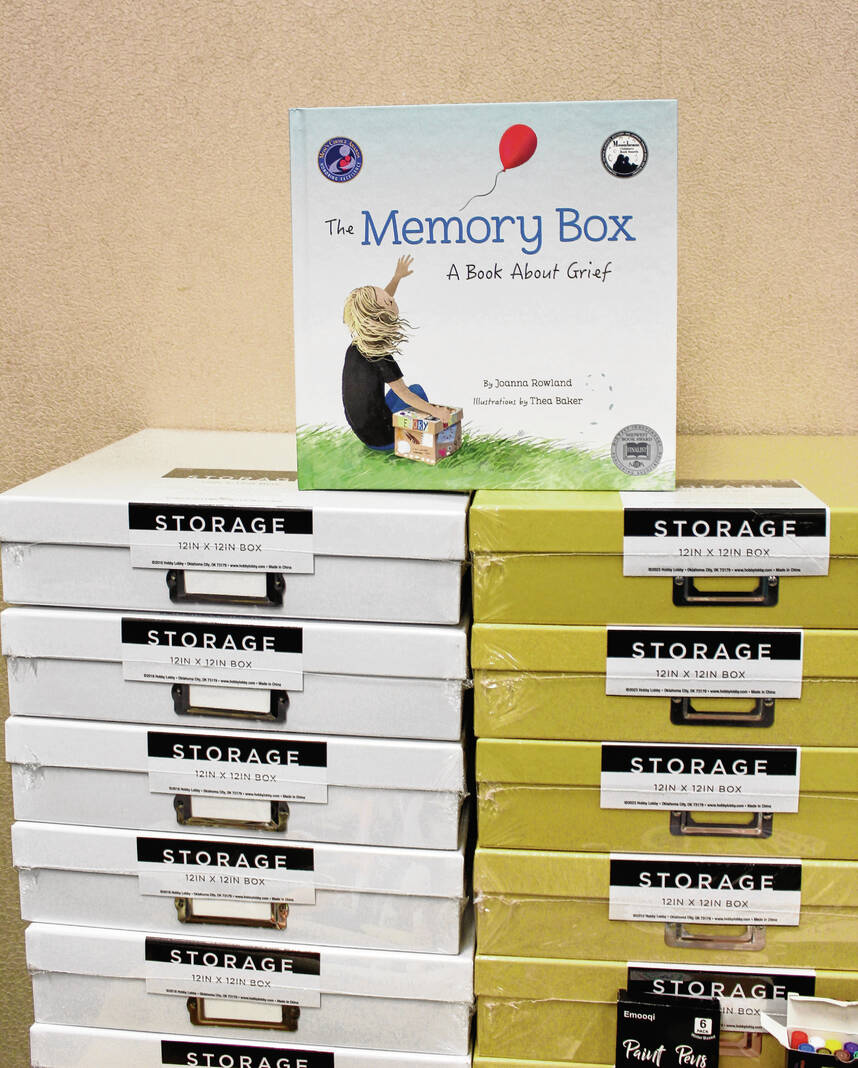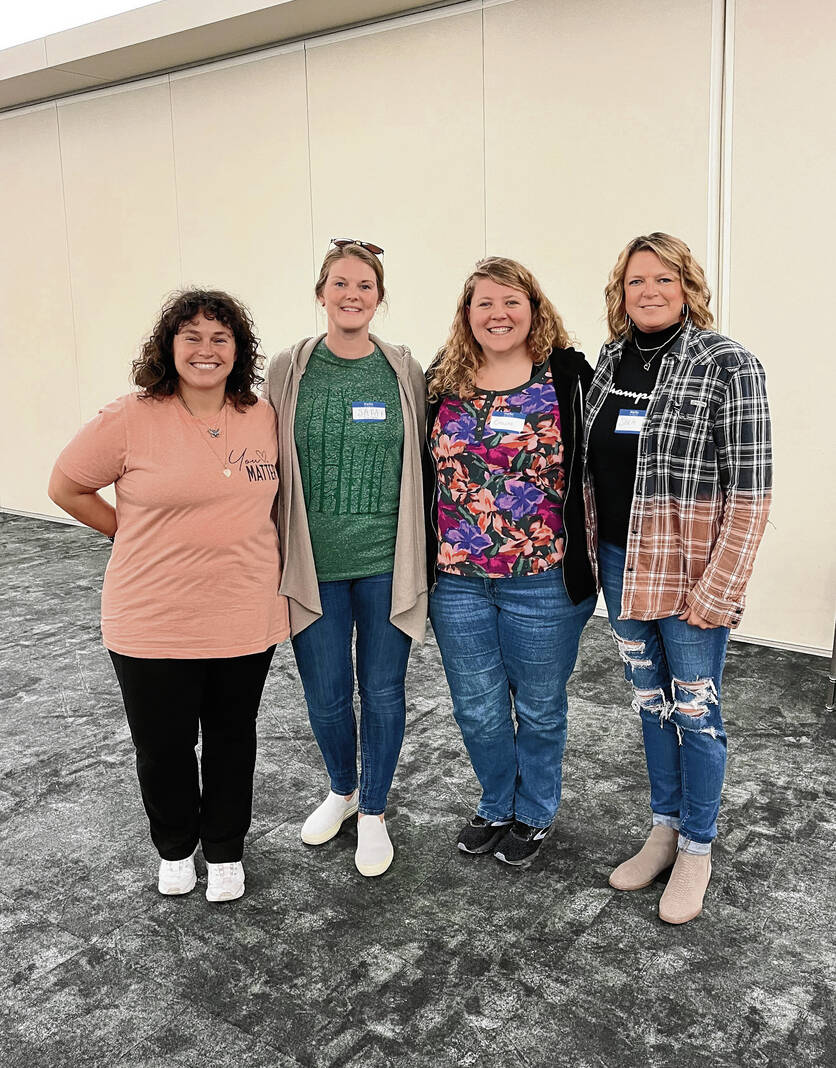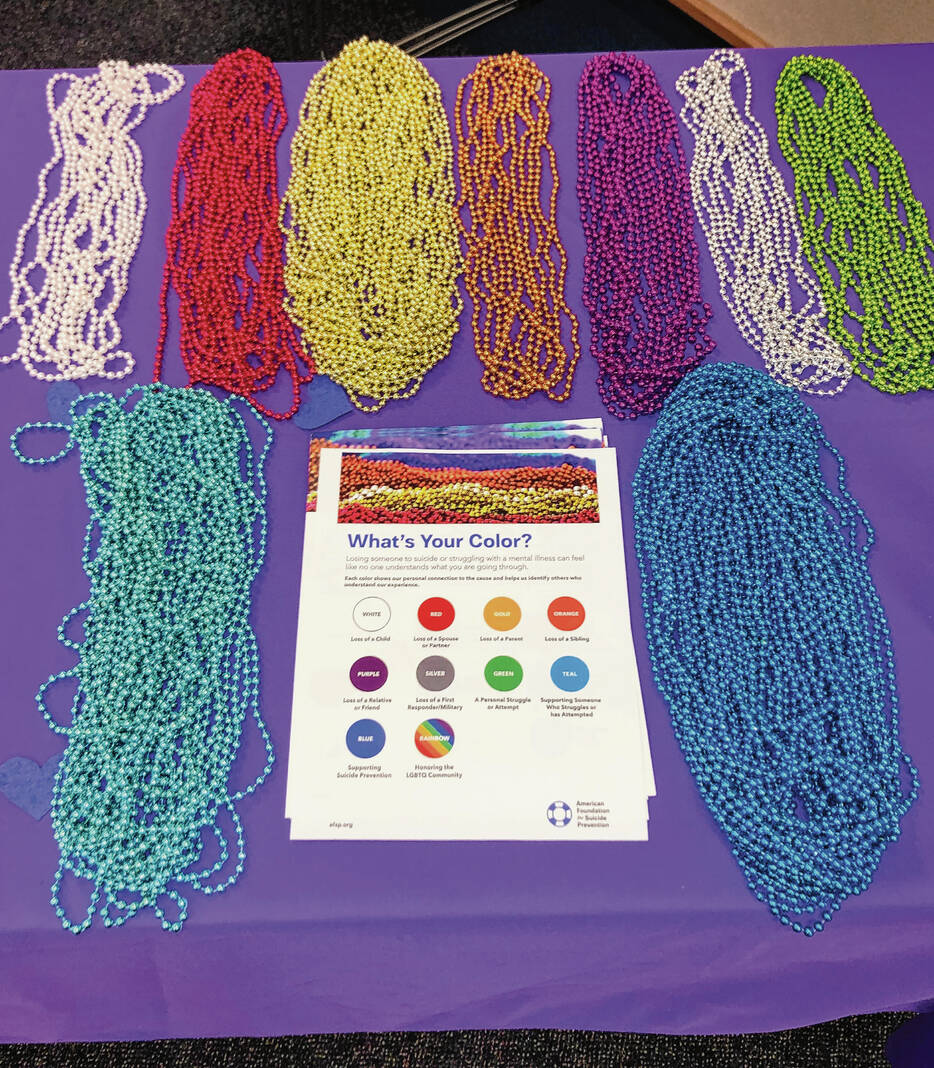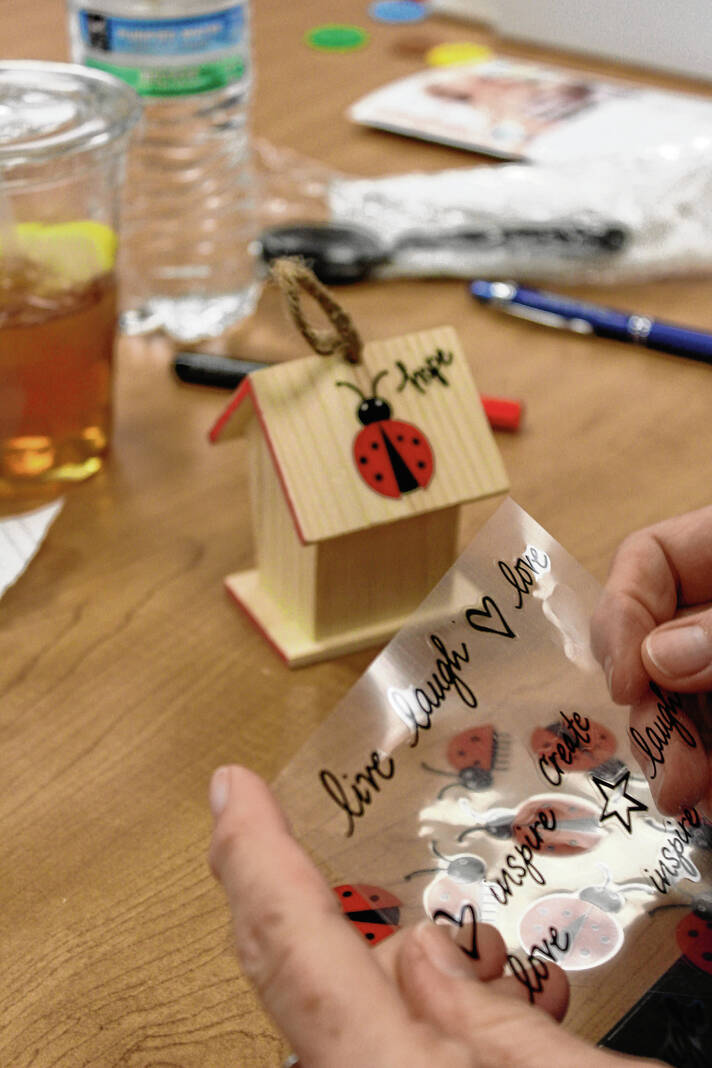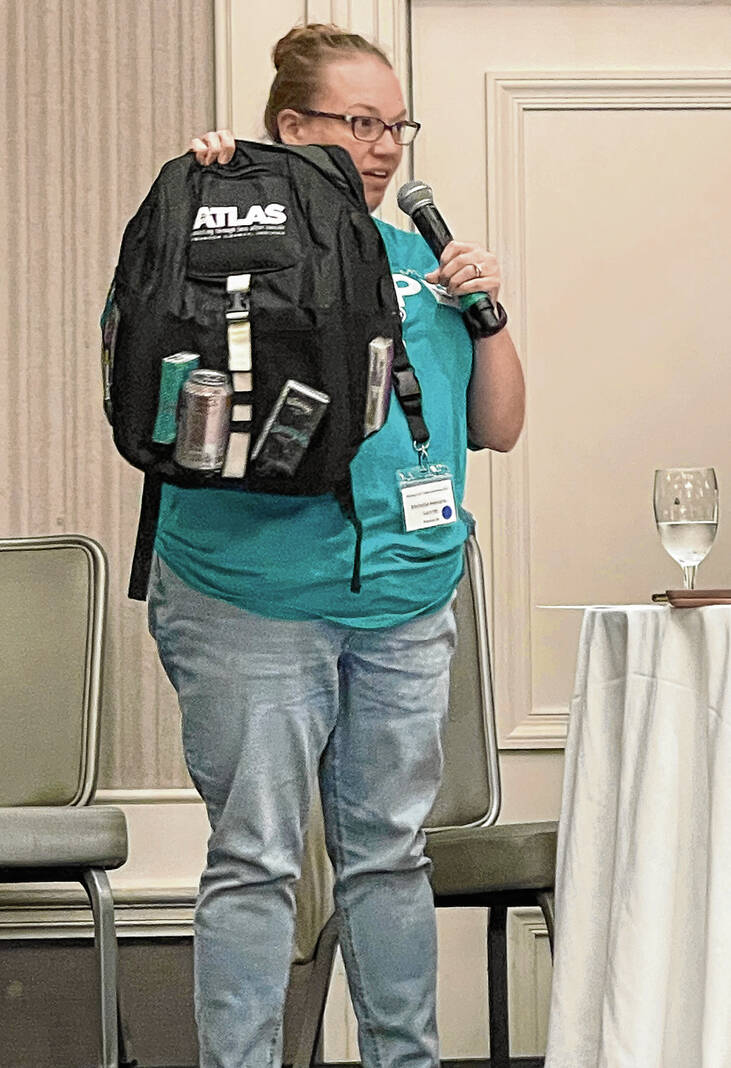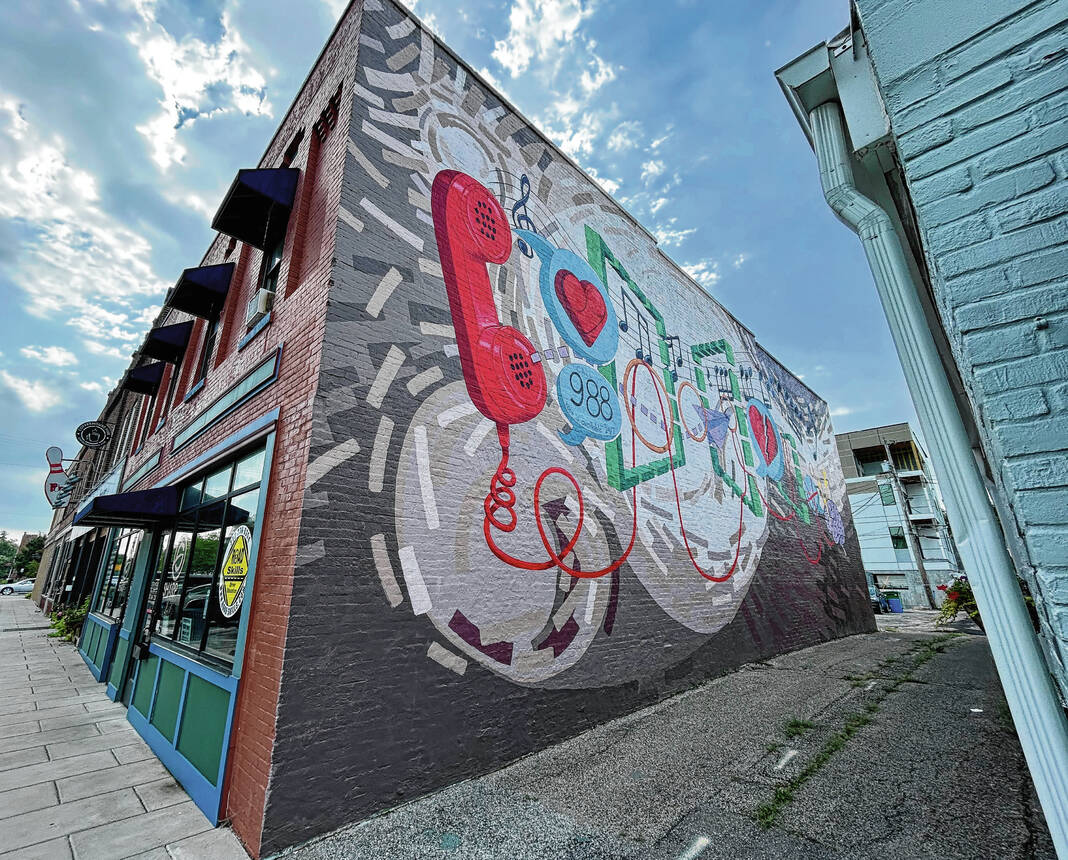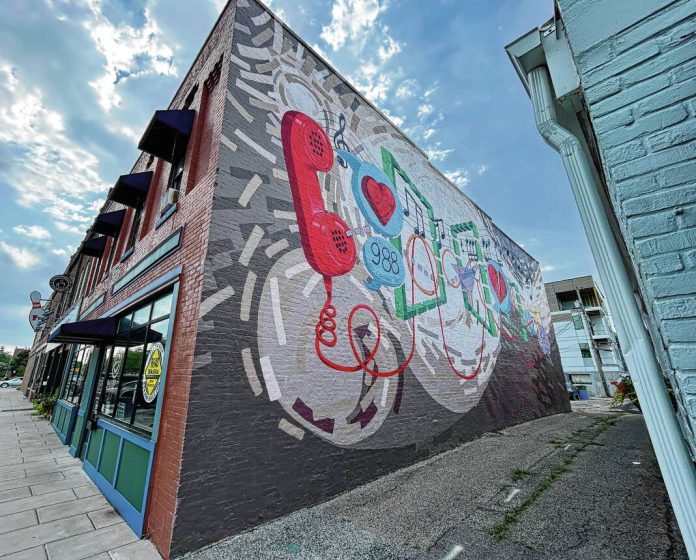
The Wall of Hope, a mural in downtown Franklin centered around the Suicide and Crisis Lifeline, was created by local health organization Upstream Prevention to raise awareness of mental health issues. The organization will offer suicide loss survivor support groups for teens and adults starting in January.
DAILY JOURNAL FILE PHOTO
She simply needed someone who understood.
After Crystal Neil’s daughter, Taylor, died by suicide in 2021, her life was shattered. The joy drained from Neil’s life; sadness seemed to overwhelm everything. She had never really had to deal with her emotions in the past, and such a monumental loss seemed like too much.
But she came to understand that she had to do something to address those feelings and connect with others going through similar loss.
“It took me to such a low that I knew if I didn’t find something, I wouldn’t survive this,” she said.
To help other suicide loss survivors such as Neil, a pair of new support groups are coming to Johnson County. Assisting Through Loss After Suicide — a program of community health organization Upstream Prevention — is starting suicide bereaved support groups starting in January.
Two groups are planned, one for teens and another for adults. The hope is to give people who are experiencing a common type of loss support and a sense of community as they navigate the grieving process.
“When you lose someone unexpectedly, it can feel like you’re all alone and no one else has been in this space,” said Kathleen Ratcliff, executive director of Upstream Prevention and chair of the Suicide Prevention Coalition of Johnson County. “As a community, we don’t often talk about suicide, or when someone dies and it is a death by suicide, we don’t always acknowledge that publicly.
“This gives them that space for individuals to be able to say their loved one died by suicide, and talk about with others who understand.”
Suicide prevention has become a key component of Upstream Prevention’s work with community health. In 2020, Johnson County had a suicide rate of 16.2 per 100,000 population, according to the Indiana State Department of Health. That number is higher than the state average of 15.4 per 100,000.
State records indicate that in 2022, 23 people died by suicide in Johnson County.
Through its Suicide Prevention Coalition, the organization has worked diligently to educate the community about the risks and signs of potential self-harm, and hosted trainings, workshops and other events to spotlight the problem.
One of the more visible aspects has been the creation of ATLAS in 2022. The volunteer response team will help individuals who have lost a loved one to suicide by providing rapid support to ensure loss survivors are not alone. Those volunteers also connect loss survivors to resources for ongoing support.
Every November, the coalition and ATLAS hosts a local event for International Survivor of Suicide Loss Day to help those impacted by suicide loss.
The idea for suicide loss support groups grew out of that.
“They have lost someone to a specific type of death, and this pulls them together and lets them lean on each other, find comfort in each other and push that hope to continue — that things can get better and that grief is complicated,” Ratcliff said.
Suicide loss support groups can be found in communities throughout the United States and beyond, but until this point, there had not been one in Johnson County. ATLAS volunteers were able to complete training through the American Foundation for Suicide Prevention in 2023, setting the stage for the support groups to launch in 2024.
The groups will meet monthly, with the adult gathering held on the third Wednesday of the month and the teen gathering on the second Tuesday of the month.
Organizers felt it was important to include a separate group for teens impacted by suicide loss so they could get that peer support of others their age who have gone through it, Ratcliff said.
An adult will be on the premises, but not in the room, fostering a more open atmosphere.
“They can talk about all the things that maybe they don’t want to say with an adult around. It gives them that approach,” Ratcliff said. “What a 15-year-old needs in that time is different than what a 45-year-old needs. The content is more active, up and doing things to cope and grieve.”
The groups will be facilitated by suicide loss survivors and individuals familiar with suicide loss. Neil will be part of that team leading that.
“There is something about connecting with people who share in a similar experience,” she said. “There are support groups, but not suicide-related. Suicide is just very different. No disrespect to anybody who loses someone from cancer or car accidents or some other illness. Suicide is always the elephant in the room. Even still, people judge and stigmatize.”
Neil has experienced the benefits of a support group to aid survivors of suicide loss and erase some of the stigma attached to suicide. For about a year, she has been involved with an online support community founded by Melissa Bottorf-Arey, an author, certified Master Grief Companion, and a trauma-informed healer whose son died by suicide in 2016.
“Connecting with a lot of these women, I’ve been talking about Upstream (Prevention) and ATLAS. I don’t think there’s anywhere else, at least right now, making the strides and efforts that Johnson County is making,” Neil said.
Neil and her family had struggled with Taylor’s mental health for many years — signs of her struggle go back as far as when she was 9 years old. As she grew older, psychological evaluations revealed signs of borderline personality disorder.
“When I was given that diagnosis — I couldn’t say this then, but I can say it now — some part of me knew I was probably going to lose her at a young age,” Neil said. “Taylor always talked about how she wouldn’t live to be old.”
Those fears manifested on Dec. 22, 2021, when Taylor died by suicide.
“I couldn’t talk about it, and then I lost her. And losing a child is the worst thing that can ever happen to a parent,” she said.
Neil started looking online, finding podcasts and other resources to tap into. She discovered Bottorf-Arey’s podcast, “The Leftover Pieces,” and searched for other support. She looked to see if there were any nearby and learned about ATLAS. She was trained and certified to be part of that program last year.
Speaking with ATLAS representatives, she offered to start a suicide loss survivor support group if they didn’t have one.
“I’m a helper; I want to help other people,” she said. “I’m so excited to have this Johnson County support group because the online support group is how I’m able to talk about all of this.”
Neil will be heavily involved in the support groups, joining other volunteer ATLAS members as facilitators. Organizers have set up a registration form online for interested participants to fill out prior to attending a support group meeting.
The questionnaire will allow facilitators to get in touch with them ahead of time, to make sure they understand what the group is and is not.
“It’s not therapy. It’s not run by people with their counselor hats on, but it is that peer support and grieving aspect,” Neil said. “We want to have these conversations ahead of time.”
AT A GLANCE
Suicide loss survivor support groups
What: A pair of support groups for people who have lost someone to suicide. The free groups offer a safe space for survivors, validation and a sense of community.
Who: Presented by Upstream Prevention in collaboration with the Assisting Through Loss After Suicide team
When: A group for teens ages 13 to 17 will be held the second Tuesday of the month, starting Jan. 9. An adult group, for those 18 and older, will be the second Wednesday of the month starting Jan. 10.
To sign up: Go to upstreamprevention.org/community-coalitions/suicidepreventioncoalition/resources and fill out the registration form. A facilitator from ATLAS will be in touch.


